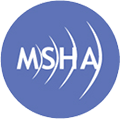
Self-Study: Connecting the "Why" to the "What":
Targeted Interventions for Dysphagia Management
Available September 1-30
Members: $60*
Non-Members: $120
Students: $40*
*To register, members of other SLPA associations must use code: SLPAGuest
Students must use code: Student2023
Clinicians often take a “more is better” approach to dysphagia intervention – long lists of exercises, and strategies that our clients and their families can’t possibly adhere to, or interventions that don’t match the underlying diagnosis or impairment. This course will discuss potential underlying causes of dysphagia and their accompanying impairments in order to help clinicians develop targeted interventions for adults with dysphagia. Case reviews will be utilized to assist participants in identification of physiological targets for swallow treatment including breathing/swallow discoordination, delays in swallow response, and pharyngeal dysmotility among others. Assistance with development of impairment-specific strategies, exercises and compensations will be provided.
Outline
Session One
I. 15 minutes Introduction
A. Current practice patterns
B. Moving toward an impairment-based practice
II. What’s the Diagnosis? Identification of impairments specific to medical diagnose
A. 30 minutes COPD, COVID 19, OSA and other Respiratory Disorders
B. 15 minutes Neuromuscular Diseases
C. 15 minutes Head/Neck Cancer
D. 15 minutes CVA and brain injury
E. 15 minutes Cervical Spine
F. 15 minutes Esophageal dysphagia
G. 15 minutes Dementia and Palliative Care
III. Pneumonia – Who gets it and what causes it?
A. 25 minutes What exactly is aspiration pneumonia
B. 20 minutes Risk factors for pneumonia in patients with dysphagia
Session Two:
IV. Dietary Modifications– considering the risks as well as the benefits
A. 30 minutes Texture Modifications
B. 20 minutes Thickened liquids
V. 15 minutes Cough – what does it tell us and how can we improve it?
VI. Exercise and Motor Learning
A. 15 minutes Principles of exercise physiology and motor learning
B. 20 minutes Identification of appropriate candidates for exercise
C. 25 minutes Choosing exercises by impairment
VII. 15 minutes Sensory interventions
A. Cold
B. Carbonation
C. Taste
VIII. 30 minutes Compensations – Choosing strategies based on impairments
Learning Objectives
Participants will be able to...
1. Identify impairments in swallow function associated with specific disease processes
2. Describe three risk factors for aspiration pneumonia in adult clients with dysphagia
3. Evaluate the risks and benefits of thickened liquids and texture modifications as part of a dysphagia management plan
4. Describe two strategies to improve airway protection via improved cough response
5. Implement swallow exercises that are specific to underlying impairments in individuals with swallow dysfunction
6. Describe two potential sensory interventions to improve swallow response


About the Speaker
ANGELA MANSOLILLO, MA/CCC-SLP, BCS-S, is a Speech-Language Pathologist and Board Certified Specialist in Swallowing Disorders with more than 30 years of experience. She is currently a senior Speech-Language Pathologist at Cooley Dickinson Hospital in Northampton, Massachusetts where she provides evaluation and treatment services for adults and children with dysphagia and is involved in program planning and development for inpatient and outpatient programming including quality improvement initiatives, patient education, and clinical policies and protocols. In addition, she is an adjunct faculty member at Elms College Department of Communication Sciences and Disorders in Chicopee, Massachusetts. Over the course of her career, she has worked in a variety of clinical settings, provided numerous regional and national presentations, and lectured at several colleges and universities throughout Massachusetts. Most recently, she is the author of Let’s Eat, a clinical manual for treatment of pediatric feeding and swallowing disorders. Angela is a sought-after speaker for both live and online continuing education courses as she seamlessly blends current research with clinical experience.
Financial Disclosure: Angela receives a salary as an employee of Cooley Dickinson Hospital and as an adjunct professor at the Elms College. She receives speaking fees from Medbridge, PESI, and HCEU. She is receiving an honorarium for this presentation. Angela receives royalties and speaking fees from her book "Let's Eat".
Non-financial Disclosure: Angela is a member of ASHA and MSHA.
ASHA requires participation in the CEU Registry to receive CEUs. If you are not part of ASHA’s CEU Registry, the Certificate of Completion will serve as documentation for ASHA CMHs.

ASHA CE Provider approval and use of the Brand Block does not imply endorsement of course content, specific products, or clinical procedures.

